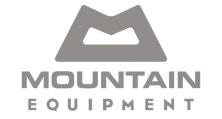Tracking
the Journey
-
Distance to go:
0 Mi
Distance
Ben and Tarka will cover 1800 miles starting from Scott's Terra Nova Hut at the edge of Antarctica to the South Pole and back to the coast again. That's equivalent to 69 back-to-back marathons hauling up to 200kg each (the weight of roughly two adult men) of kit and supplies necessary to survive.
Distances here are shown in statute miles.
Resupply (Day 70)

I'm sorry to have kept you waiting for this update; you might have seen from the tracker that we haven't moved for a while, and you may be wondering what's up. For more than a decade I've been trying to get to the start line of this expedition, and for more than a decade I've been talking about how it would be a journey that was at the very limits of human endurance. Today, in hindsight, I wonder if I really appreciated how prescient and accurate that glib statement was, and yet how little I knew about where that journey would lead me, and what it would take for Tarka and me to dig so deep.
Part of the appeal of this expedition to me was that it seemed just about possible. Roger Mear, one of Robert Swan's team that completed Scott's one-way journey to the Pole in the mid-eighties said they didn't entertain the thought of unsupported return journey as it was plainly "impossible" to haul enough food and fuel. Both Scott and Shackleton, of course, had pre-positioned depots the year before their Pole attempts, and then had further teams hauling provisions for them all the way to the Plateau, peeling away one by one like booster rockets falling back to earth. Scott himself didn't put his own sledge harness on until he got to the base of the Beardmore Glacier, and at most his men pulled just over 90kg each.
By contrast, Tarka and I pulled 200kg each at the start, heavier loads per man than Scott's weakest two ponies each dragged. Peter McDowell, one of the senior directors of ALE, described it as "Fifty percent harder" than anything he had seen in his time supporting Antarctic expeditions. We gambled on getting faster as our loads lightened, and based on our training and experience, Tarka and I had secretly set ourselves the goal of covering 42km -a full marathon- per day on our return from the Pole to the Beardmore. We planned our food and fuel to match, going light and -we hoped- fast, with almost no leeway for error or a let-up in pace. This is why we did such a big day to turn at the Pole, and why we've had no time to rest properly since. We had two-and-a-half hours' sleep on our Pole day, and haven't had more than five hour's sleep for nearly two months. Our only full rest day was 55 days ago. The toll this effort has taken has been quite something, and the speed we hoped for never came.
Our near-empty sledges still felt heavy and the energy that carried us up the Beardmore, and indeed to the Pole itself in record time despite dragging more than anyone in history, started to wane dramatically in the last few days. What's more, we've been running lower on food as we failed to meet our mileage targets. Six days ago we started to eat half rations, and I've felt shattered every day since, aware that I was depleting my body at a rate that might have been reckless. My stomach growled permanently, my ribs became more prominent by the day, my legs were painfully weak and my mind and thoughts and decision-making grew foggy and dim. On our second day of half-rations I got dangerously cold when I had to remove my outer jacket in the middle of a storm to add more insulating layers, and it was only Tarka's help -zipping up my jackets like I was a toddler while my cold hands hung useless by my side- that got me out of trouble and through a very dark day indeed.
I've been reluctant to say so (sorry mum!) but we've both been on the ragged edge for a while now, and on New Year's Eve, we set out on what was to prove the hardest day of the expedition. It was Tarka's turn this time to struggle, and I'd reached a state where I was barely able to realise it. The windchill was -45 degrees centigrade when I recorded it, and we stayed outside for more than 13 hours, on fifty percent of the food I'd intended and wearing almost all the clothes we had with us. At breaks we would eat halved energy bars and our normally-sweet drinks tasted like lukewarm dishwater with a hint of lemon. Towards the eighth or ninth hour Tarka's normally rock-steady metronomic pace started to become erratic and he seemed to stagger and stumble more than usual on ridges and divots in the snow surface. He stopped mid-session, in a howling blizzard, to remove his outer gilet (the Primaloft-insulated Mountain Equipment Compressor vests that have served us so well here) and flipped back his hood as if he were too hot. I know -as a professional leader of expeditions to the coldest places on the planet- that these are tell-tale signs of hypothermia, yet I was on the limit myself and failed to react. All I can remember from that afternoon that drifted into evening, with the dim sun slowly wheeling around us and the horizon erasing itself and reappearing again in the whirling fog of spindrift, was being unable to think of anything more than the battle raging in my head against the part of me that wanted so desperately to stop. Just to lean my shoulders on my ski poles and slump forwards against the resistance of my harness and rest, and to hell with the consequences. I wondered at times if I fell over whether I'd have the strength to stand up again, the energy to yell for Tarka, or whether he'd even notice me calling over the noise of the wind.
When I took over the lead I kept turning back to see Tarka -normally right on my heels- drifting further behind me. I stopped a few times to let him catch up, but it was too cold for me to wait for more than a minute or two before I started shivering, so I raised a single ski pole, he raised his in reply -a signal we've often used here- and I shuffled on. After doing this a few times, with Tarka receding as if the horizon was sucking him backward like quicksand, he stopped raising his pole. I waited, but by now he was a tiny dark speck in the white that took forever to grow. I unclipped my harness and started to put the tent up, feeling dizzy and breathless myself, and taking what seemed like ages to match the poles to their corresponding fabric sleeves, like a drunk taking some sort of coordination test. "Sorry I'm late", said Tarka as he arrived, but it sounded like someone else entirely, his words mumbled and slow.
As we finished slowly setting up camp, I saw he was fumbling in his giant outer mittens with the plastic buckles that strap our sledges closed. "I can't feel my hands", he said through a mask encrusted with ice, his shoulders slumped forwards. As we zipped ourselves into the porch of the tent to take our boots and outer layers off before climbing into our sleeping bags, we saw that the tips of his thumbs were at least badly frostnipped, if not lost entirely to frostbite. I remember feeling a mixture of fear and anger, both at him and at myself for letting this happen. I pulled up my jacket and fleece so he could warm his hands in my armpits, and to my relief the colour and circulation started to return. We ate our watery half-dinners in near-silence and fell asleep exhausted and cold, knowing we would have to match the same distance the next day.
Our depot was still 74km away and we had barely more than half a day's food to reach it; eight energy bars each, half a breakfast and half an evening meal. 16km into the following day Tarka started to slow again as he led, before stopping entirely and waving me forward to talk. "I feel really weak in the legs again", he said. "OK. What do you want to do?" I answered snappily, before realising this was on me. I came here to be challenged and tested, to give my all to the hardest task I have ever set myself and to the biggest dream I have ever had. And here was the crux. This was the moment that mattered, not standing by the Pole having my photograph taken, but standing next to my friend, in a howling gale, miles away from anyone or anything. "Let's put the tent up", I said, "I've got an idea".
My idea was to call for a resupply. To have more food and fuel flown to our position so that we could rest and recover before finishing this journey. A decision that changes the status of this expedition from "unsupported" or "unassisted" or whatever semantics you wish to choose to the opposite. Part of me also feels it inevitable that we and this journey would face critics even if we'd done it in period clothing eating pemmican and pony meat. Yet in an instant I realised that my and Tarka's lives are not something I wanted to gamble with, and that we had given our all. We were lucky that neither of us had collapsed the day before, and I knew we couldn't possibly have hoped to recover on our meagre rations from the physical holes we'd dug ourselves into.
At the other end of the world, on the other end of a crackling and hissing satellite phone line, our expedition manager Andy Ward sprang into action, and things happened incredibly quickly, with a ski-plane carrying eight days' of rations landing twelve hours later. The weather worsened as we waited and I feared the flight would be aborted, or that a bag would be air-dropped at speed and lost in the blizzard, but in a beautiful twist of what some might call fate, the pilot was Troy, the same man that picked me up from the Arctic Ocean after my 72-day solo expedition nearly ten years ago, and in my eyes the finest polar pilot in the world. The Twin Otter appeared through a tiny hole in the rolling cloud and swang over us once before landing on the ridged and uneven snow surface and taxiing right up to our tent, its wing-tip almost above our roof. The wind was still blasting and the plane's skis were almost hidden under the blowing snow. "I'm sorry about the weather", I said to Troy, amazed that he'd been able to land. "Oh, it was fine", he replied modestly.
The hours we spent waiting were, I fear, dark ones for Tarka. He seemed a broken man. "It'll look like my fault", he said, "and that's a good thing for you." This was Tarka through and through. Weeks ago he said humbly, "If there are media at the airport when we get back, I'm happy to help with the bags while you talk to them." He finally admitted last night that when I was struggling (and if I'm honest now, on the verge of wanting to quit) a few weeks ago he'd taken food bags from my sledge while I was in the tent to help lighten my load without telling me, so he'd been pulling more weight than me for weeks.
Tarka is the hero here, and the irony of our situation is that I would never have made it to this point without his herculean efforts; his giving everything he has to this goal. I'm proud of how deep we have each dug, and I am amazed and humbled by Tarka's sacrifice. He has pushed (or indeed pulled) himself until he dropped, and I'm also as exhausted as I've ever been. For weeks now I have slept fitfully and woken up cold. We are both alarmingly lean, and we have both struggled for a while to maintain trains of thought or decent conversations. I suspect my writing has been going downhill too.
And now we are lying here resting, like two new men after ten hours' sleep, full-bellied and warm again for the first time in weeks, before we move north again to complete this unfinished journey. Our status has changed, but how little that means to me now. Scott didn't wear his harness until the Beardmore and would have been "supported" in modern polar parlance. I don't think we made any mistakes, and I don't think we could have done anything more, or pulled any more food up here. We travelled 5.6km per day at the start with 200kg per man, greater loads than each of Scott's weakest ponies hauled.
I know a few commentators have suggested that we've been "lucky" with weather and surface compared to a century ago, but I don't believe this is true. Our luck is in having GPS units that allow us to ski blind into whiteouts, in having synthetic skins on our skis that allow us to grip, and in having the nutrition and fitness and clothing to survive dragging loads that would have been unthinkable in that era. We have had no choice but to move every day, whatever the weather, for more than 70 hours per week of intense physical exertion, twice as much as a Tour de France cyclist, over ten weeks and not three.
Now my head is clearer and my body is recovering, I think of status and records and achievement and impermanence. Every gold medal one day ends up in a collectors' cabinet, an auction lot or a drawer in an antique shop. Trophies oxidise, the ribbons of rosettes curl and fade. I don't know where my proudly-won Scout badges are now. I hope our journey has not been diminished in your eyes now it is "imperfect". Yet of course for us humans, perfection can never really be reached, contentment is either here today, with the striving and the mess we all inhabit, all open loops and half-finished lists and could-do-better-next-times, or we will never find it. And the biggest lessons -to me at least- of this very long, very hard walk, are perhaps that compassion is more important than glory. Friendship and kindness and taking care of each other -like Tarka secretly removing weight from my sledge- matter more than achievement or status. The joy of being outdoors and alive in the wild, pushing ourselves harder than anyone will ever understand, will I think in time prove more wholesome and satisfying than the pride of any public recognition on our homecoming.
We're resting up today, we're safe, we're well, we'll do a shorter day north towards our mid-plateau depot tomorrow and we'll carry on home from there, retracing our steps to Ross Island. We're still in the process of making a journey that's never been done before, and I hope you'll still keep following. Tarka and I are humbled and grateful for your interest and support, and I am more thankful than I know how to say for Intel and Land Rover and all of our other partners for standing by us in our most trying days. Onwards.










Comments
# Heidi, January 3rd 2014
“We’re resting up today, we’re safe, we’re well….” That is all we wanted to hear. No guilt, no shame. You explained how the Scott Expedition had laid in depots up to a year previous; had they had access to planes, I’m sure they would have used them. Your friends around the world, we just want you to succeed by making it all the way home. “... we’re safe, we’re well…” - that’s all that really matters. Godspeed, gentlemen.
# Katie Emmer, January 3rd 2014
Great to hear; clearly you made the right choice! Far and away your first priority is to take care of each other, without which, what good is faith to move mountains? We here in the peanut gallery are cheering for you to complete your journey with all your fingers and toes! Wishing you peace, strength, laughs, and wisdom for every step and every decision. So proud of you both.
# Christy, January 3rd 2014
OMG, history so nearly repeated itself! Your experience has perhaps peeled away another layer of the Scott tragedy in a way that Scott’s diary did not. To me your description of hunger, weakness and descent into hypothermia, illuminates more of what the hours of Scott and his remaining team members’ final trudge to that last camp may have been like, how Scott himself who always seemed impatient with those who allowed frostbite to happen could have frozen his own feet without realizing it was happening. It is ironic too that like Scott, your reports have ranged from optimistic to stoic, but never quite letting on just how bad things really were. I think that in many ways you are achieving much more than you set out to achieve, and certainly you are adding treasure to the gathering wealth of polar knowledge! Keep the faith!!
# John M, January 3rd 2014
Dear Ben and Tarka
For me, your own words sum this situation up beautifully:
“I think of status and records and achievement and impermanence. Every gold medal one day ends up in a collectors’ cabinet, an auction lot or a drawer in an antique shop. Trophies oxidise, the ribbons of rosettes curl and fade. I don’t know where my proudly-won Scout badges are now. I hope our journey has not been diminished in your eyes now it is “imperfect”. Yet of course for us humans, perfection can never really be reached, contentment is either here today, with the striving and the mess we all inhabit, all open loops and half-finished lists and could-do-better-next-times, or we will never find it. And the biggest lessons -to me at least- of this very long, very hard walk, are perhaps that compassion is more important than glory. Friendship and kindness and taking care of each other -like Tarka secretly removing weight from my sledge- matter more than achievement or status. The joy of being outdoors and alive in the wild, pushing ourselves harder than anyone will ever understand, will I think in time prove more wholesome and satisfying than the pride of any public recognition on our homecoming.”
In war, people die for notions of ‘glory’. It is indeed vain glory, as one is dead, and unable to see or hear the adulation of ‘glory’ ascribed to ones memory by others still happily alive.
To have risked your most precious lives, simply for notions of ‘glory’ or in some misguided attempt to fulfil social conditioning and assigned roles of male stereotyping ‘toughness’ would have been foolhardy in the extreme, and to ask for assistance was the only sensible and rational thing to do.
Do not feel in the slightest bit disappointed, please, re supposed ‘status’ changes, for the goal of an unsupported return journey was simply that, a goal, and not something that should outweigh the going, for as the saying goes, “it is better to set out than it is to arrive”.
That so many people around the world have enjoyed reading your blogs, and followed the progress of your journey surely speaks volumes as to how many of us, see ourselves as living the journey with you, but through your eyes rather than our own.
And like many adventures in life, it is always about the journey and what one learns from it, rather than the end goal in itself.
You have made wonderful friendships, and had an opportunity to experience the world of nature in all it’s wonderful extremes, and that is something that will remain with you for the rest of your lives, far more than any social adulation and so called ‘glory’.
It is all well and good for the armchair self appointed ‘experts’ to decry ‘disappointment’ that the expedition is now ‘supported’, but let just one of them even dare to attempt what you have achieved - after all, they want the notion of glory, and to see history rewritten, but like the politician who forces a man into war, it is not their life on the line.
So please, do not feel disappointed, and above all do not let yourselves be hurt by the insensitive criticism of armchair critics over supposed goals for which they will be happy to criticise any seeming ‘failure’ whilst not taking any responsibility and none of the risk.
It is your lives, and your time, and you have achieved much in that time - or as one might put it - a life very well lived.
That I could but do it, instead of writing these few lines which I hope will have some meaning and encouragement.
I do not know either of you, but I offer my support and encouragement and huge respect.
Thank you so much for letting us share in your most wonderful adventure.
Come back home safe to your friends and family who love you, and with a life enriched beyond all measure and to a depth that few of us could even contemplate.
Hugs and All the Best for the New Year!
John… :-)
# Zion, January 3rd 2014
Who are you trying to impress? The history books? I think most of us who have followed your adventures will continue to be inspired by your journey. Thanks for being human!
# Jennifer, January 3rd 2014
Ben and Tarka, what a relief that you are much better! Given your choice at this point of the expedition, you executed sage judgment. The goal now has simply been slightly amended. Your strength, wisdom, and optimism, (not to mention incredible writing skills) have infused many of us with that infectious Ben-Tarka magic. What a privilege it has been witnessing your achievements!
Thomas Edison did not fail; he only learned from his experiences, which is exactly what men like he and you do.
(To “Kristoffer,” a valid concern or suggestion that doesn’t appear to be addressed would most likely be appreciated by the expedition team, especially if delivered in a non-arrogant, supportive manner. Unsolicited, haughty comments from self-appointed critics who can’t seem to take any criticism themselves is nothing but….trolling. Please park your imperious attitude at the door.)
# Kristoffer, January 3rd 2014
Are you done smearing me? What is so terrible about asking questions openly? I’m not the only one who doesn’t see what is wrong with asking questions openly. Considering all the baseless character attacks based on the fact that I actually asked what went wrong, I’d say all of you negative people (who ironically are more negative than the people they complain about) need to check your privilege.
# bob, January 3rd 2014
In most web articles, blogs, or Facebook threads there’s always “that guy”. We all know him; he wasn’t breast fed or didn’t get enough hugs growing up. He’s never amounted to much, and failed to meet the small goals he’s set for himself. Other’s achievements threaten him, so he needs to attack them to make himself feel better. He has years of experience defending his narcissism, and will play the martyr when confronted. He’ll keep crying for attention as long as it’s given to him. Ignore him and his need will be met elsewhere.
# Jennifer, January 3rd 2014
Kristoffer, wait , are you not the one who extolled the virtues of criticism? You blasted your comments with numerous quotes of the great value and under-appreciation of critics. The hypocrisy is that you can dish it out but can’t seem to take it.
Regardless, you didn’t seem to understand what I said. It wasn’t the fact that you were questioning; it was how the questions were presented and your indignation that the expedition team didn’t address your demands.
In short, if you communicate in a more diplomatic and less pompous manner, people may pay more attention to what you say rather than how you say it.
# Frazer, January 3rd 2014
You’re both incredibly inspiring. There will be plenty time for introspection and criticism. For now, you’ve still got a job to finish. You’ve had your conditions check. Now you have to suck it up and crack on! “Onwards”.
# Dave Cornthwaite, January 3rd 2014
Super writing. Good decision. Forget the naysayers, anyone who has achieved half of what you’ve both (and everyone else who has been involved in the project) accomplished will have enough self awareness that criticism changes nothing in this scenario, except for only, perhaps, morale. What others think means nothing, this isn’t about accolades or claims, there are far more important things to fuss about. You’re both an inspiration and continue to be so. Get strong and plod on.
# Sandra Price, January 3rd 2014
I read your post with bated breath and am so relieved to hear that you are both OK. Your decision was absolutely the right one in the circumstances. Your families must be relieved to hear that you are resting up before continuing. I am sure that it is as much of an experience/endurance test for them as for you two. I have followed you ever since hearing you speak at Speech Day at Ipswich School a couple of years ago. You are both incredible people and believe that you are totally supported from all of us armchair fans !!
# Intrepid, January 3rd 2014
Dear Everyone,
I am a little bit bothered because as a follower of this blog I didn’t bring to print what I had noticed about the sound of Ben’s voice changing. I recall my senses being en garde, then questioning how I could know something about what’s happening when I know diddley squat about the expedition (it is outside my experience and expertise). I decided to believe that if there really was a problem we would be informed. I didn’t post my concerns. I didn’t say, “Hey Ben, you don’t sound right. What is really going on there? I’m worried.” So here’s my question…. Does commenting on blogs come with the responsibility of being candid in all circumstances? Does archiving a journey require all the (absolute) facts, reporting what is happening to the best of one’s ability, or/and does a blogger have some poetic license?
# Andrea, January 3rd 2014
It is very hard for the expedition to concentrete to note here the details, they have to execute there things. The expedition’s hell is an under-persupposed thing; only after it will be completed there, will be time for details of this expedition.
To let to be known how the daily nature appears to acting humans escalading and descending the South Pole, is the expedition’s blog center.